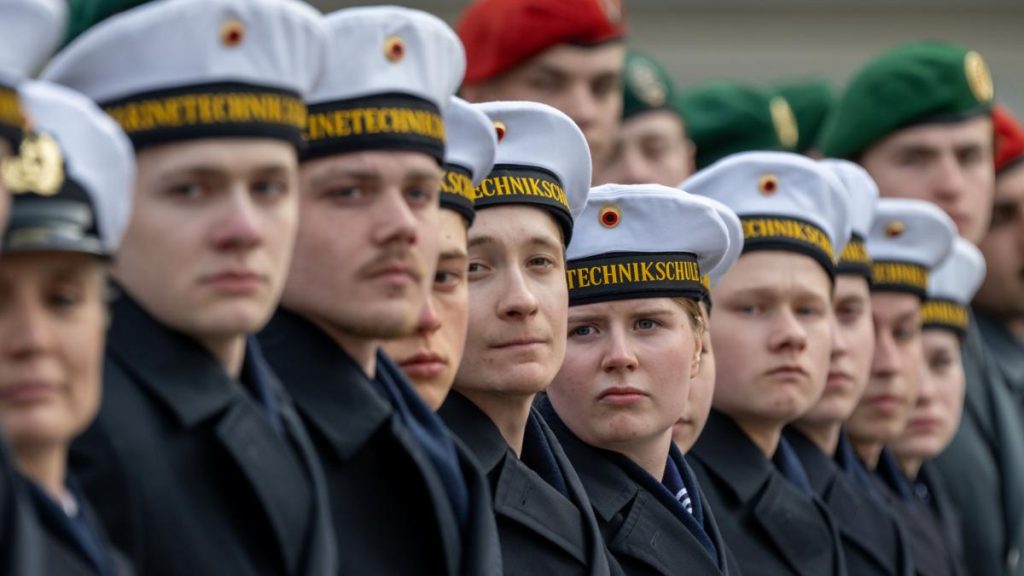In the CDU, there is a growing divide over the issue of returning to compulsory military service. While party leadership is in favor of only introducing a mandatory “social year” in the new fundamental program draft, there are voices within the party calling for a swift return to conscription. This debate is expected to be contentious at the upcoming CDU party congress in Berlin. The issue of military readiness is crucial for many families and has the potential to impact life plans, provoke fears, and even sway election campaigns.
One of the main advocates for the reintroduction of conscription is Johann Wadephul, deputy faction leader responsible for foreign and defense policy in the Bundestag. He has highlighted the urgent need for measures to improve the military’s readiness in response to growing personnel shortages. Wadephul’s concerns are echoed by several CDU regional associations, including those from Lower Saxony, Hesse, Baden-Württemberg, and North Rhine-Westphalia, who are pushing for at least a reconsideration of a return to compulsory military service. The Young Union is the most vocal in their call for reinstating conscription for everyone.
Support for the reintroduction of conscription is not limited to the CDU, as CSU leader Markus Söder and former CDU Secretary General Peter Tauber have also expressed their support. The argument for bringing back conscription is driven by the need for a more comprehensive approach than just a general national service. However, there are significant hurdles to overcome, including the need for a two-thirds majority in both the Bundestag and Bundesrat to reactivate conscription. Additionally, a full return to the old military service model would strain the logistical capabilities of the Bundeswehr.
A proposed solution to these challenges is the “Swedish model” of selective conscription, where only a portion of a cohort is actually required to serve. This approach aims to balance the need for military personnel with the logistical constraints of the armed forces. Defense Minister Boris Pistorius (SPD) is expected to introduce a similar model in May, setting the stage for a heated debate within the government coalition. Despite resistance to the idea of conscription, especially within the Ampel coalition, the CDU remains at the forefront of the discussion. General Secretary Linnemann has voiced his support for a societal service model that promotes personal development and societal resilience, urging party delegates to reject any proposals advocating the return of conscription.
The debate over the future of military service in Germany reflects broader socio-political tensions and concerns about national security. The differing opinions within the CDU highlight internal divisions over the best approach to ensuring military readiness and addressing personnel shortages. As the party congress approaches, the CDU will need to navigate these contentious discussions and find a consensus on the issue of compulsory military service. The outcome of this debate will likely have far-reaching implications for the future of national defense policy and the political landscape in Germany.















